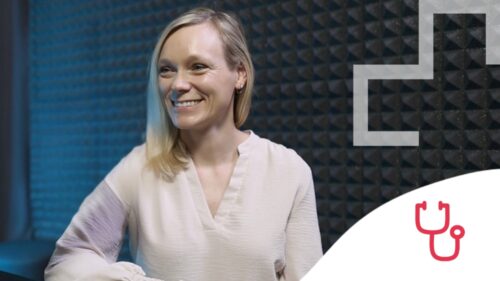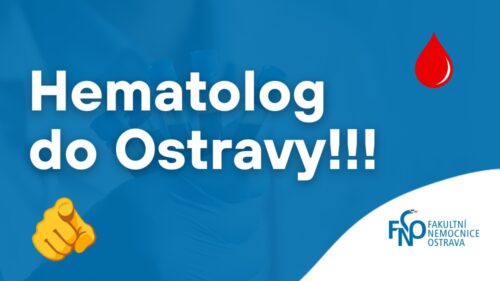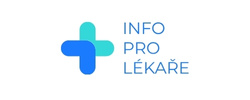Medical student and doctor in the Netherlands – Fia Cialdella
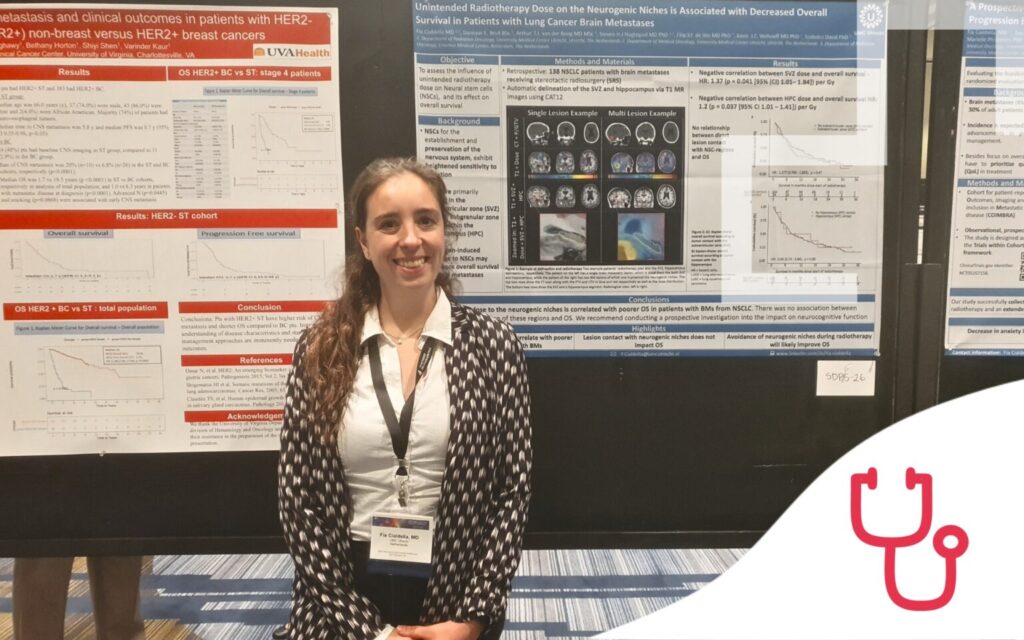
Today’s interview will be very special. My guest is the young doctor Fia Cialdella, who studied medicine and now works as a physician in the Netherlands. We will talk about studying medicine in the Netherlands, the transition from faculty to practice, postgraduate education, a scientific career, but also take a glimpse into the life of an inspiring doctor.
Fia graduated in 2019 from the University of Amsterdam, then worked for 1.5 years in neurology. Now, as part of her Ph.D. studies in the Department of Radiation Oncology at UMC Utrecht, she focuses on the clinical characteristics, treatment (toxicities), quality of life, and imaging of brain metastases. Additionally, she works as a clinical oncologist, primarily treating patients with brain tumors.
Fia, thank you very much for your willingness and time to participate in this interview. Could you please tell us briefly about studying medicine in the Netherlands?
You can study medicine at the eight medical faculties in the Netherlands: Amsterdam UvA, Amsterdam VU, Groningen, Leiden, Maastricht, Nijmegen, Rotterdam and Utrecht.
The study of medicine has approximately 3,000 places throughout the Netherlands per year, which are distributed by decentralized selection. In general, the decentralized selection consists of two rounds. What these rounds look like differs per university. Each program has its own selection procedure; in order to find the students who best fit the curriculum of this university. Most universities require you to be able to demonstrate that you have an affinity with healthcare (part-time job in a nursing home, hospital, informal care, etc.) usually consists of attending lectures, subject matter and taking a test. So many people want it, but only a small part can actually study it. (As a reference: About 60,000 people start a university study every year.)
How does the study itself look like then?
The route to qualification as a doctor in the Netherlands consists of two main phases:
– BSc in medicine; 3 years
– MSc in medicine; an additional 3 years
Basic theory is the main focus of the Bachelor’s program. You learn how the body functions and which diseases there are. You also have regular contact with patients, including in lectures or practical
The subsequent Master’s program focuses on the application of the knowledge in practice. So, you get more contact with patients. During a large part of your master’s program, you will do internships. These are internships are on all departments in and out the hospital (for example surgery, internal medicine but also at the general practitioner).
If you successfully complete both phases, you are a medical doctor and you can register in the BIG register**. Please note: no specialist yet, not even a general practitioner.
** A healthcare provider with a BIG registration may use the legally protected professional title associated with the profession. In addition, doctors, registered dental hygienists, clinical technologists, physician assistants, dentists, obstetricians and nursing specialists may independently perform reserved actions that are part of their profession. And the care provider may start with specialist training.
In the Czech Republic, women dominate medical faculties with a ratio of up to 4:1. How is it in the Netherlands?
Today, 70 percent of medical students are women.
What is the predominant method of assessing knowledge and skills in medical studies?
In the Bachelor’s you mainly have paper exams and once a year a station test where you have oral exams per „station“, such as histology, pharmacotherapy, medical decision-making, physical examination. And in the Master’s, you conclude each internship with an oral exam based on specific cases that you have seen and handed in in advance.
Is there any specialization during the study, or is it a standard curriculum, and specialization occurs after graduation?
There is a standard curriculum during study, and after graduation, most people usually do different jobs before going in training to medical specialist to experience what they like and to choose in or outside the hospital. In addition, doing these jobs also shows the medical specialists what knowledge and skills you have.
The training/study to medical specialist is also 3 – 6 years. During this part you are paid as doctor and having educational mornings/afternoons each week. And you have to do a yearly-test.
Let’s move on to the transition from medical faculty to medical practice. How does this process work? How do you choose specialties and employers?
As already mentioned after medical school you need to gain experience in the medical field. There are several steps;
1. First jobs as Doctor-not-in- training as a specialist (ANIOS)
After the exploration of divers medical specialties during your internships it is time to start. your first job as doctor-not-in- training-to- specialist (we call it: ANIOS). It takes 1-3 years to work as ANIOS before it is possible to start with you training to medical specialist.
Some people engage in extracurricular activities, research, and networking. And some of them quit with work in the clinic to fully focus on research by doing a Ph.D for 3-4 years. Afterwards they apply for the specialty training.
2. Medical specialist Training: Once you have chosen a specialty, you will need to pursue specialized training in that field. Specialization in the Netherlands is known as a „medische vervolgopleiding“ or „medical residency.“ The duration of the residency program varies depending on the chosen specialty, ranging from three to six years. The process of entering the medische vervolgopleiding can be very competitive because there are limited number of places per year. During this part you are already well paid and you are called an AIOS.
3. Employment as a Medical Specialist: After successfully completing your specialty training, you can start seeking employment as a medical specialist. There are several options available, including academic hospitals, general hospitals, specialized clinics, or private practices. You can explore job openings through online platforms, medical societies, professional networks, and by contacting potential employers directly.
Which specialties are most sought after and prestigious?
The specialties of general practice, pediatrics, internal medicine and surgery are by far the most popular.
In the Netherlands, doctors are not as highly regarded as in other countries. However, cardiologists are often said to be very arrogant and patients worship the neurosurgeon (laughs).
How does the entry of a medical graduate into practice work in the Netherlands? What can they do or not do on their own? Who supervises their work and how?
As soon as you are BIG registered, you can do the anamnesis and physical examination. You learn step by step how to do additional diagnostics or certain actions, such as an lumbar puncture. In the beginning, you discuss every case you see with your supervisor (medical specialist) before discussing the treatment plan with the patient. If you have been in the department for some time, you are allowed to make some decisions yourself and discuss the case at the end of the day. During night shift you have to call your supervisor for supervision.
The more difficult the task, the longer it will take you to do it independently. As an example, an operation is performed by the surgeon and you are allowed to assist (read: holding clamp, suturing) as ANIOS and only during your training as a medical specialist (in the example as a surgeon) do you learn to do this independently.
What is the salary range for doctors in your country? What is the difference between a graduate and a specialist?
It’s not about the money! It’s about what you can do for your patients!
Of course, I fully understand that, but everyone has to pay the bills…
The average gross monthly salary for ANIOS ranges from around €3,500 to €5,000 (income before deductions such as taxes, social security contributions, and other applicable withholdings.)
It is difficult to provide an average salary for medical specialists as it can vary greatly. However, some medical specialists in the Netherlands can earn gross monthly salaries ranging from €6,000 to €15,000 or more. (income before deductions such as taxes, social security contributions, and other applicable withholdings.)
How difficult would it be for a foreign doctor to find work in the Netherlands? What are the obstacles?
Finding work as a foreign doctor in the Netherlands can be challenging, but it is not impossible. The level of difficulty and the specific obstacles can vary depending on factors such as the doctor’s level of expertise, qualifications, language proficiency, and the demand for their specialty in the Dutch healthcare system.
Tell me more please…
Ok, proficiency in the Dutch language is crucial for practicing medicine in the Netherlands. As healthcare is highly patient-oriented, effective communication with patients and colleagues is essential. Many medical positions require a certain level of Dutch language proficiency, although some English-speaking positions might be available in academic and international healthcare settings.
Another issue is the qualification – foreign doctors need to have their qualifications recognized by the Dutch system for healthcare professionals, known as the BIG-register. This process involves verifying the equivalence of their medical degree and often requires additional examinations or assessments. The specific requirements and process can vary depending on the country of origin and the individual’s qualifications.
Last, but not least – specialization and training – if a foreign doctor intends to practice as a specialist, they may need to pursue additional training or specialization in the Netherlands. The process of entering a residency program can be competitive and may require meeting specific criteria, such as language proficiency and fulfilling any additional educational or examination requirements.
It’s important to note that the Dutch healthcare system has specific regulations and requirements in place to ensure patient safety and maintain high standards of care. Understanding and meeting these requirements is crucial for foreign doctors seeking employment in the Netherlands. Seeking guidance from professional organizations, or employment agencies specialized in healthcare can provide valuable support throughout the process.
Great, now let’s focus more on you, Fia. We’ve already mentioned some basic information about you, but tell me…what field are you currently working in or would you like to pursue in the future?
I am working at 2 departments at the moment:
1) the department of radiotherapy: 4 days/week Ph.D into the clinical characteristics, treatment (toxicities), QoL and imaging of brain metastases.
2) the medical oncology: 1 day/week as a Doctor-not-in- training as a specialist to treat people with brain tumors with systemic therapy.
Hopefully I have a good package of experience and knowledge to apply for the specialty training to be a neurologist in the future. Also, a special route for Dutch standards, but I am convinced that my other route gives me more experience and knowledge compared to other doctors who want to train as a neurologist, so that I will have a better chance of getting the training place in the application rounds (FYI: 5 available per year per university hospital, 7 hospitals in total).
Why did you choose this field?
I think neurology is the most beautiful specialism because it is teamwork with the patient. The anamnesis and physical examination really work together with your patient, as I sometimes say “ to solve the search for the right diagnosis you really have to work together with your patient“. In addition, how awesome/wonderful, that as doctor you can handle the organ (the brain) that makes you YOU. The medical world can give you other lungs, and then you are you, but if you got another brain, then your whole thinking and control of your body is different.
How do you perceive your beginnings as a young doctor?
The initial months of my journey as a young doctor, beginning in July 2019, presented me with numerous challenges. One of the most significant hurdles I faced was learning how to handle difficult and emotionally charged cases, which are quite common in the emergency department of neurology. Witnessing patients and their loved ones grappling with challenging diagnoses and uncertain outcomes was emotionally overwhelming at times.
However, I see these situations as opportunities for growth and personal development. Recognizing the importance of emotional resilience, I actively sought guidance from experienced colleagues and mentors to navigate these matters. In fact, it is confirmed every day how much love I have for caring for and guiding patients. In which I get feedback from patients that they feel comfortable with the way I care for them.
What else do you engage in?
I am concerned with the welfare and development of young doctors, I did this until November 2022 as treasurer at De Jonge Dokter, but now I mainly do it on the work floor by paying attention to the well-being of my colleagues, discussing intense experiences with them and also ensuring moments of relaxation in the team.
In addition to the well-being of my colleagues, I am also interested in supporting patients. I would therefore like to set up a patient association specifically for patients with brain metastases, making it easy for them and their loved ones to find information about treatments, symptoms, impact on life and current studies with contact details of the responsible researchers.
How does your typical workday look like?
One day a week, I begin by preparing the outpatient ward of the medical oncology department. This involves prescribing systemic therapy reviewing laboratory and imaging results, and ensuring everything is set for the day. Following that, we hold a meeting to discuss the treatment plans for the new patients, scheduled for the week, involving input from all members of our team.
In the afternoon, I dedicate my time to consulting with patients, both in person and over the phone. During this period, I provide comprehensive care and advice to approximately 10-15 patients, addressing their concerns and providing necessary guidance. In total I have a caseload of 45 patients.
On the remaining four days of the week, my primary focus shifts towards research activities. I actively participate in studying new cases of brain metastases for our research projects. This involves collecting relevant data and inputting it into databases for analysis. I also engage in statistical analyses to identify patterns and correlations, which help us gain insights into the disease and potential treatment approaches.
Moreover, I allocate time to manuscript writing, where I communicate our research findings and conclusions. Currently, I have completed my first manuscript about radiation of the neurogenic niches in patients with brain metastases from NSCLC.
What are your hobbies?
I love to read books, going to the sauna with my friends or boyfriend, cooking for my loved ones and enjoying nature by hiking or by bike.
Fia, I thank you very much for your willingness for this interview, and I wish you much success and life satisfaction.
Články na podobné téma
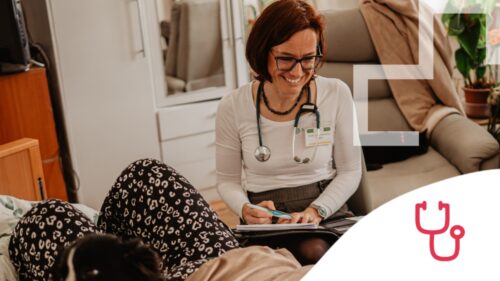
Jedním z nejsmysluplnějších zaměstnání je práce pro mobilní hospic
Připravujeme
Registruj se, ať ti nic neuteče
Pravidelně posíláme nejprogresivnějších newsletter českého zdravotnictví, který odebírá více než 13 000 lidí.
Staňte se naším partnerem
Buďte součástí našeho úspěšného projektu a získejte přístup k odbornému know-how a novým obchodním příležitostem.
Oslovte největší českou komunitu mediků a lékařů
Staňte se součástí našeho odborného obsahu
Postavte se po bok projektu s mimořádným přesahem
Copyright © 2025 Po medině | Zlepšujeme české zdravotnictví odspodu.
